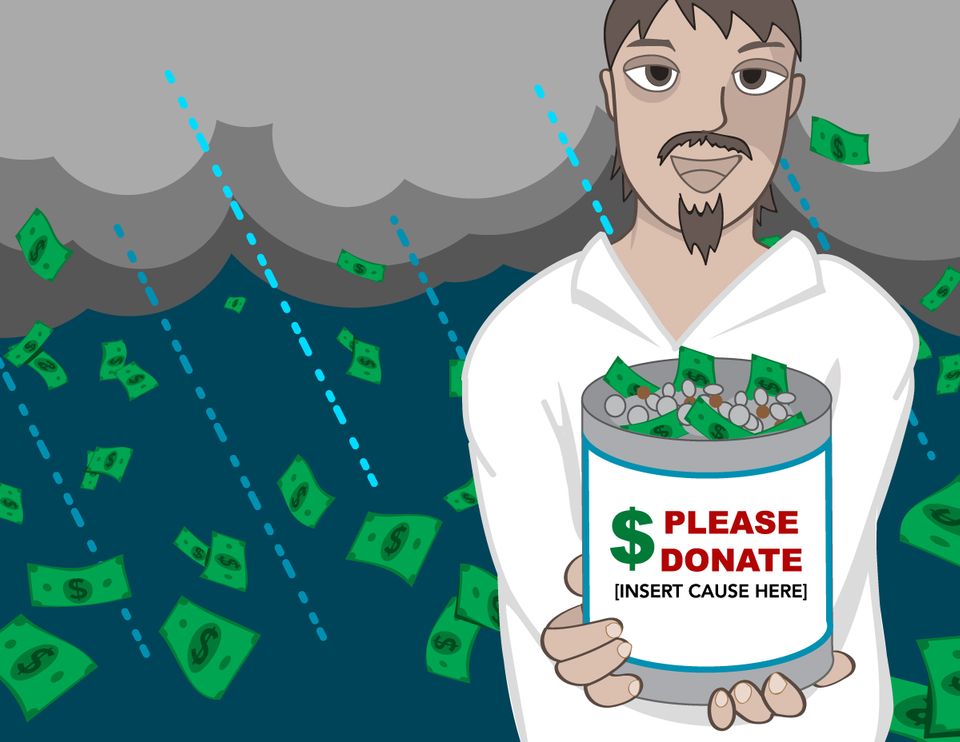Give smart: 4 tips to avoid charity scams

What’s the best nation in the world? A donation!
President Donald Trump’s election has spurred millions of Americans to open their wallets to support causes that reflect their views and values.
There has been a tremendous spike in donations to organizations such as Planned Parenthood, the Sierra Club, and the Southern Poverty Law Center from supporters concerned about this administration’s plans for the future. In recent weeks, the American Civil Liberties Union has received $24 million in donations—nearly seven times more than it received in 2015.
“There’s been a surge in searches for charities that benefit refugees and immigrants and civil rights,” said Sandra Miniutti, vice president of Charity Navigator, an independent charity evaluator. “Back in November, we saw an uptick toward environmental and women’s causes.”
Scammers love a crisis. When they see a spike in donations toward a certain cause, they get to work creating misleading social-media accounts, websites, and email newsletters to prey on sympathies by stealing money or, worse, personal information.
After Hurricane Katrina, overseas criminals created more than 4,000 bogus websites to steal money and identities, according to an FBI report. The U.S. Department of Justice similarly documented thousands of cases of charity fraud in the aftermath of Hurricane Sandy, the devastating 2013 Oklahoma tornadoes and, more recently, the water crisis in Flint.
Here are four ways to ensure that your personal data and funds reach the intended legitimate charities (and nobody else):
Don’t be guided by emotion
Donating money to charity is a quick and effective way to feel like you’re part of an effort to make a difference. A recent GQ article details the onset of “rage donations”—those given in response to a constant stream of upsetting information. One woman said she “donates a small amount of money to a broad variety of nonprofits whenever she feels overwhelmed or helpless watching the news.”
Take a breath before allowing yourself to be overwhelmed and pressured into giving to a charity you know nothing about. Make sure that its site clarifies an organizational mission that aligns with your values.
“When it comes to charitable giving, be proactive, not reactive,” says Jackie Enterline, head of Outreach at GuideStar, a nonprofit database. “Don’t just give on the fly because you see something that upsets you.”
Don’t give directly from social media
It’s easy to tweet out or Instagram photos of crying Syrian children or protesters from the Women’s March on Washington with a link to directly donate money. Fraudsters know readers can get sucked in by an emotional story on Facebook.
“Social media has really caught on, in terms of…sharing information, sharing links, and you don’t know exactly where it came from,” Tim Maniscalo, president of the Better Business Bureau of Central Indiana, said in a statement in November. “It could’ve gone through many, many other people before it got to you. You don’t know the legitimacy of that.”
Be wary of GoFundMe campaigns or other pleas that well-meaning friends have “liked” or “shared” on Facebook. Recent events such as the Orlando nightclub shooting, the Louisiana floods, and Hurricane Matthew have sparked state and federal regulators to speak out against GoFundMe fraud.
Do your research
“People need to put the same effort and research into [which] charities to give to as they give to reading Yelp reviews to choose a restaurant,” Enterline says.
Not all charities have a .org or have a seal of approval from an overarching entity. But it should take only a few minutes to figure out if a charity is legit.
The FCC recommends visiting Charity Navigator or GuideStar before donating. A legitimate charity will have specialized employer identification number, or EIN, which means that it is registered with the Internal Revenue Service. You will need the EIN to successfully declare the donation as charitable when filing your taxes.
Do ask about donor privacy
Check to see if the charity has a policy about sharing information and offers tools that allow you give anonymously and prevent you from ending up on email or mailing lists soliciting more donations.
“If you get an email from an organization that you can’t quite remember signing up for alerts for, don’t give,” Miniutti says. “Scammers can buy those lists easily. It’s just like getting a phone call solicitation.”
